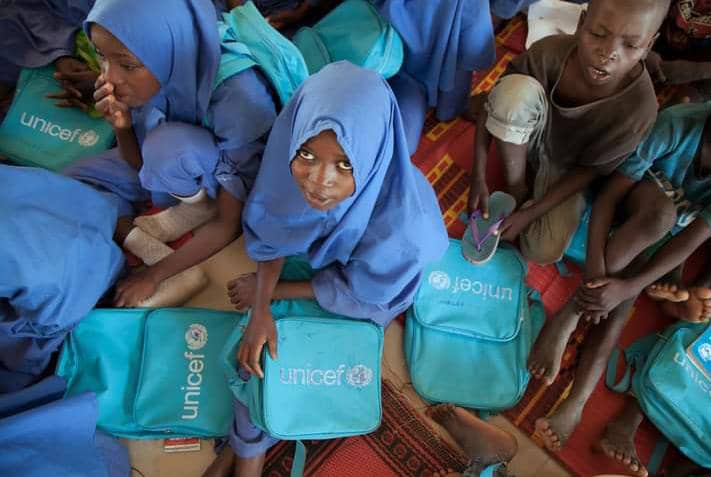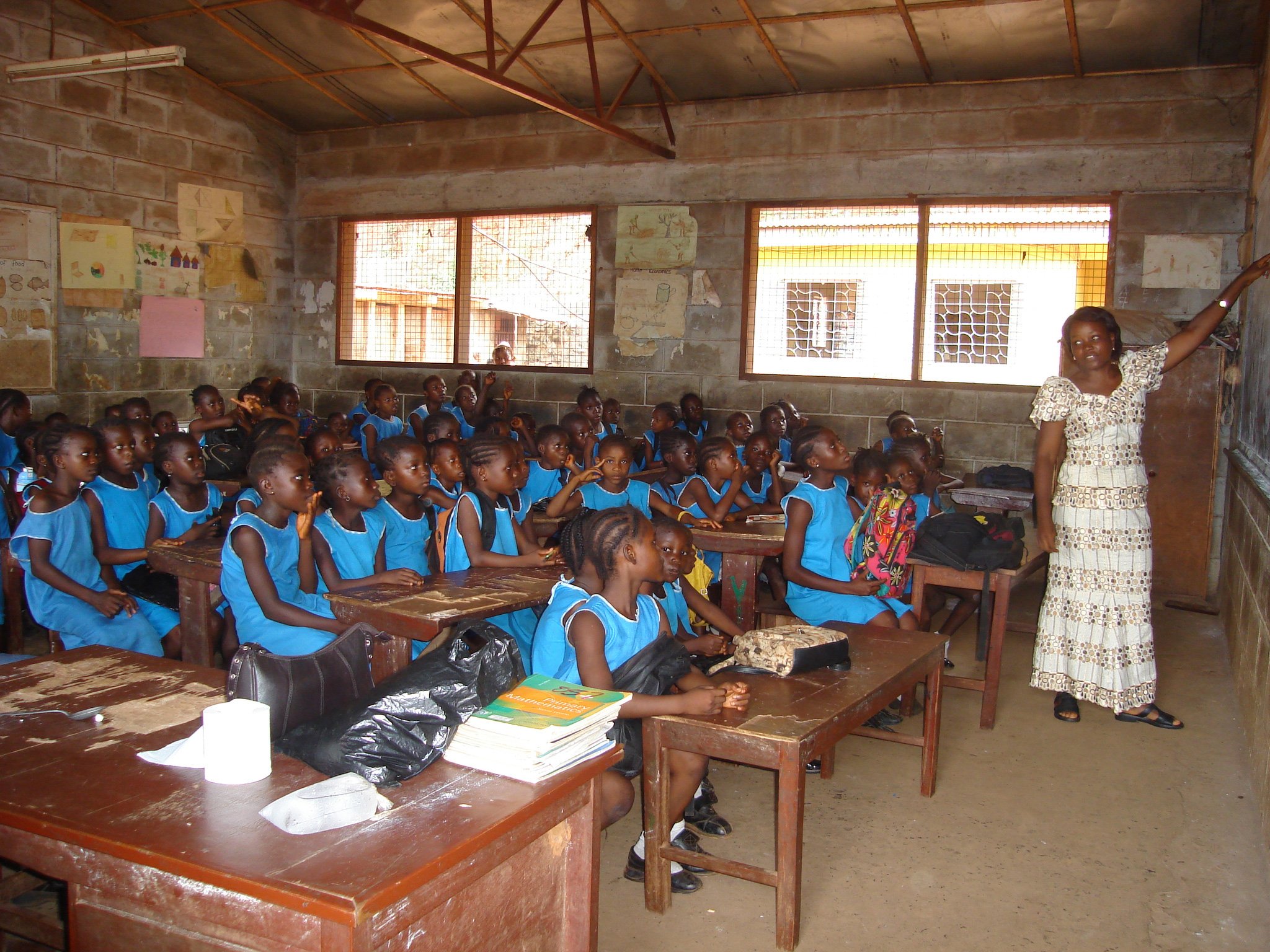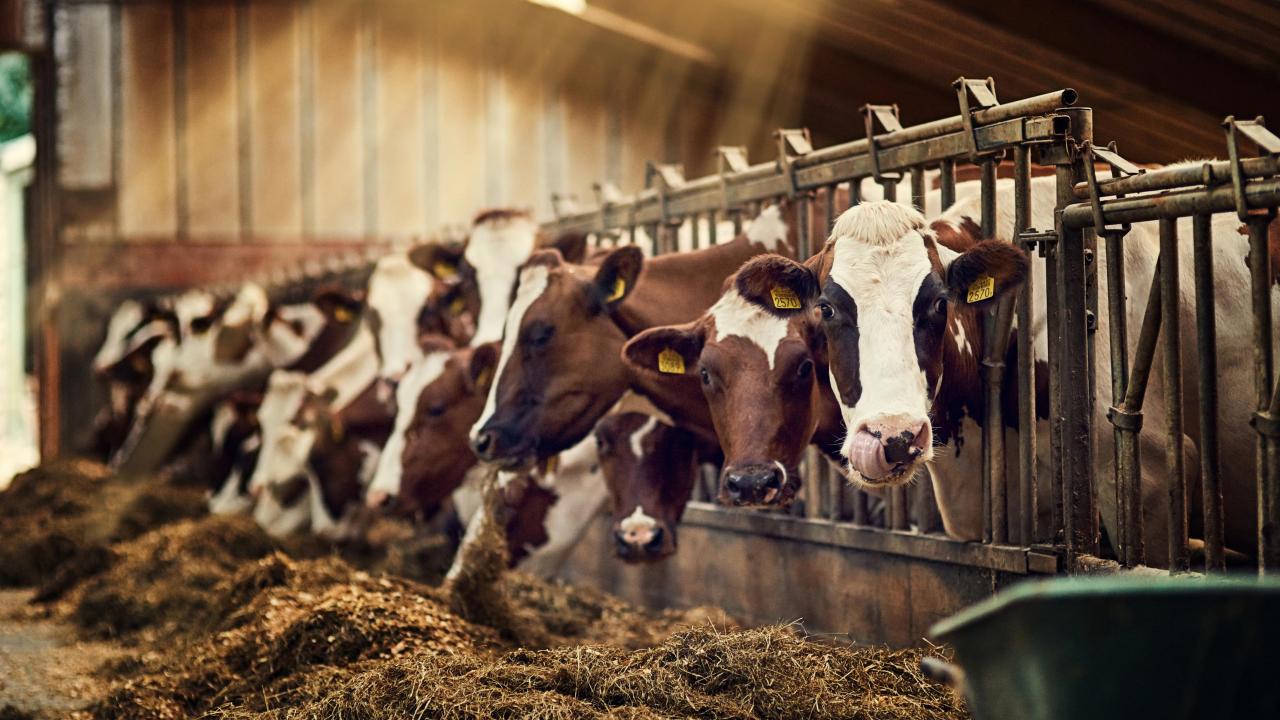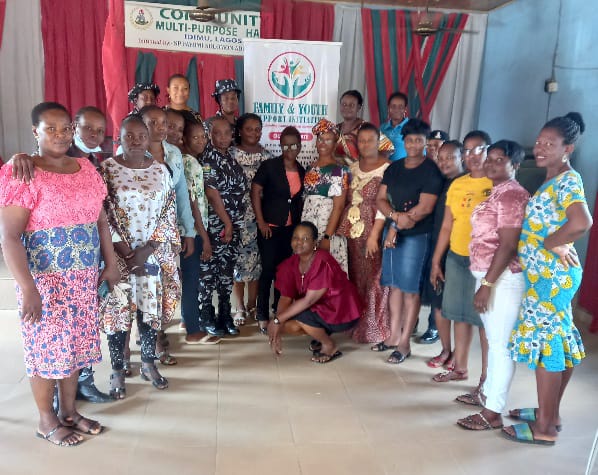Photo: UNICEF Nigeria
The United Nations Children’s Fund (UNICEF) says adolescent girls in Nigeria should be allowed access to nutritious food as over seven million females are battling undernourishment in the country.
Catherine Russell, UNICEF executive director, said this in a statement on Tuesday, to commemorate the 2023 International Women’s Day (IWD.
International Women’s Day is celebrated across the world on March 8 every year.
Russell said urgent action is needed to save about 7.3 million girls from a nutrition crisis in Nigeria.
Advertisement
She said Afghanistan, Burkina Faso, Chad, Ethiopia, Kenya, Mali, Niger, Somalia, South Sudan, Sudan, Yemen, and Nigeria are centres of nutrition crisis globally.
“The number of adolescent girls and women aged 15-49 years who are undernourished has soared from 5.6million since 2018 to 7.3 million in 2021 in Nigeria, which is among the 12 hardest hit countries by the global food and nutrition crisis,” the statement reads.
“This nutrition crisis is pushing millions of mothers and their children into hunger and severe malnutrition. Without urgent action from the international community, the consequences could last for generations to come.
Advertisement
“In Nigeria, 55 percent of adolescent girls and women suffer from anaemia while nearly half of the Nigerian women of reproductive age do not consume the recommended diet of at least 5 out of 10 food groups (grains and tubers, pulses, nuts and seeds, seeds, dairy, meat, poultry and fish, eggs, dark green leafy vegetables, other vitamin A rich fruits and vegetables, other vegetables and other fruits) according to the 2022 national food consumption and micronutrient survey.”
She said a new report “Undernourished and Overlooked: A global nutrition crisis in adolescent girls and women”, shows that the ongoing nutrition crisis is contributing to gender inequality.
“Inadequate nutrition during girls’ and women’s lives can lead to weakened immunity, poor cognitive development, and an increased risk of life-threatening complications – including during pregnancy and childbirth – risking mother’s lives, also, with dangerous and irreversible consequences for their children’s survival, growth, learning, and future earning capacity,” she added.
“For example, in Nigeria, 12 million children under 5 are stunted, meaning they are too short for their age due to malnutrition. Of those, about half become stunted during pregnancy and the first six months of life, the 500-day period when a child is fully dependent on maternal nutrition, according to a new analysis in the report.
Advertisement
“To prevent undernutrition in children, we must also address malnutrition in adolescent girls and women.
“In Nigeria, the 2022 Cadre Harmonise analysis published by the government shows that 17 million Nigerians are suffering from acute food insecurity, and this is likely to increase to 25 million in lean season this year (FMARD, 2022).”
She called on the government and other relevant organisations to work towards scaling up food, health and social protection systems for women and girls in the country.
Commenting on the need to tackle food insecurity, Cristian Munduate, UNICEF country representative in Nigeria, said more policies should be implemented to scale up food production and availability.
Advertisement
“To ensure a better future for our children, we must prioritize the access of adolescent girls and women to nutritious food and essential nutrition services. The nutrition crisis is deepening among them, and urgent action is needed from all partners including the government of Nigeria and the international community,” she said.
“We cannot afford to overlook this crisis, and we must work together to transform food, health, and social protection systems for adolescent girls and women.”
Advertisement
Advertisement
Add a comment






